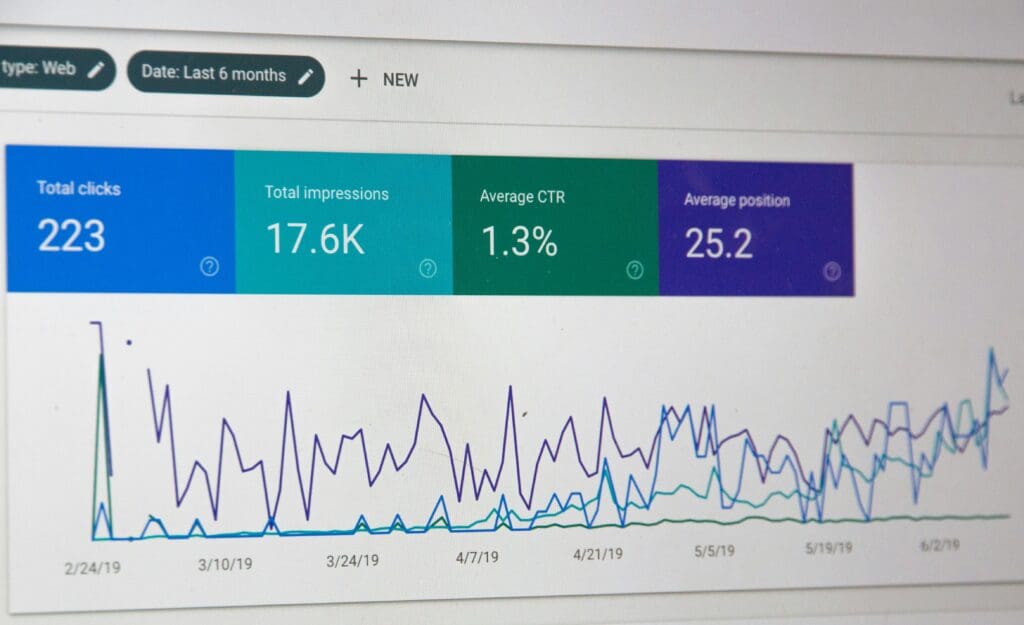
Having an online presence is crucial for the success of small businesses. One of the most effective ways to enhance this presence is through Search Engine Optimization (SEO). SEO can seem daunting, especially for beginners, but understanding and implementing it can significantly impact your business growth. In this guide, we’ll walk you through the basics of SEO, essential tips, and strategies to help your small business thrive online.
What is SEO and Why is it Important for Small Businesses?
SEO, or Search Engine Optimization, is the practice of optimizing your website to increase its visibility in search engine results pages (SERPs). It involves various techniques and strategies aimed at improving your site’s ranking on search engines like Google, Bing, and Yahoo. For small businesses, SEO is not just a luxury—it’s a necessity.
Defining SEO
SEO encompasses a range of activities, from keyword research to content creation, and technical optimization to link building. The primary goal is to make your website more attractive to search engines, helping it rank higher for relevant search queries. At its core, SEO is about understanding what people are searching for online, the answers they seek, the words they’re using, and the type of content they wish to consume. This knowledge allows businesses to create high-quality content that fulfills the searcher’s intent, ultimately leading to higher rankings and more traffic. For a more detailed understanding, you can explore resources like Moz’s Beginner’s Guide to SEO.
The Benefits of SEO for Small Businesses
Implementing SEO brings numerous benefits to small businesses. Firstly, it increases online visibility, making it easier for potential customers to find your business. Higher search engine rankings also enhance credibility and trust, as users tend to trust websites that appear at the top of search results. SEO is also a cost-effective marketing strategy; unlike paid advertising, it drives organic traffic without ongoing costs. Furthermore, SEO efforts build over time, providing long-term growth and sustainability for your business. The cumulative impact of well-executed SEO includes better user experience, higher engagement rates, and increased conversions, all contributing to sustained business growth.
Understanding Keywords

Keywords are the terms and phrases that people type into search engines. They are the bridge between what people are searching for and the content you provide. Keywords can be categorized into short-tail keywords (broad terms like “shoes”) and long-tail keywords (specific phrases like “women’s running shoes”). Understanding the role of keywords in SEO is crucial because they dictate the relevance of your content to search queries. Effective keyword usage involves balancing search volume with competition and ensuring that the keywords align with your audience’s search intent.
Conducting Keyword Research
There are various tools available to help you find the right keywords for your business, such as Google Keyword Planner, Ubersuggest, and SEMrush. Conducting keyword research involves identifying terms that your potential customers use to find products or services like yours. This process starts by brainstorming seed keywords and using keyword research tools to expand on those ideas. Choose keywords with a good balance of search volume and competition. For more insights, check out our previous post on 9 Brand Boosters on a Budget. Remember to also consider user intent when selecting keywords to ensure that your content matches what users are looking for.

On-page SEO involves optimizing individual web pages to rank higher and earn more relevant traffic. Key elements include title tags and meta descriptions, which should be relevant and include your target keywords. Header tags (H1, H2, H3) structure your content and improve readability. Image optimization is also crucial; use alt text and descriptive file names to help search engines understand your images. Internal linking strategies help both search engines and users navigate your site more effectively. Additionally, ensuring that your content is easy to read and engaging can reduce bounce rates and improve overall user experience, which are important ranking factors.
Creating High-Quality Content

Content is king in SEO. High-quality, engaging content attracts visitors and encourages them to stay longer. To write SEO-friendly content, use your keywords naturally, craft compelling headlines, and provide valuable information. Different content types, such as blogs, articles, infographics, and videos, can all enhance your SEO efforts by catering to diverse audience preferences. High-quality content not only helps in ranking but also builds credibility and trust with your audience. Consistency is key; regularly updating your blog with fresh, relevant content keeps your audience engaged and signals to search engines that your site is active and valuable.
Mobile Optimization

With the increasing use of mobile devices, having a mobile-friendly website is essential. Best practices include using responsive design, optimizing loading times, and ensuring easy navigation on mobile devices. Mobile optimization not only improves user experience but also boosts your site’s rankings on search engines, as they prioritize mobile-friendly websites. Given that a significant portion of web traffic now comes from mobile devices, neglecting mobile optimization can result in lost opportunities and lower search engine rankings. Ensure that your site is fully responsive, meaning it adjusts seamlessly to different screen sizes and provides a positive user experience across all devices.
How to Improve Small Business SEO
Improving your SEO involves both on-page and off-page strategies. Here are some key areas to focus on:
Building Backlinks

Backlinks, or inbound links, are links from other websites to your site. They are crucial for SEO as they signal to search engines that your content is valuable. Strategies for acquiring quality backlinks include guest blogging, reaching out to influencers, and creating shareable content. Backlinks from reputable sites can significantly boost your site’s authority and improve your search rankings. Additionally, engaging in link-building activities such as creating infographics, writing testimonials, and participating in industry forums can help you acquire high-quality backlinks. For a deeper dive into backlink strategies, check out this Ahrefs guide.
Local SEO Strategies

For small businesses, local SEO can drive targeted traffic from your community. Start by optimizing your Google My Business profile to ensure your business information is accurate and complete. Building local citations by getting listed in online directories also helps improve local SEO. Encouraging customer reviews can boost your local rankings and build trust with potential customers. Additionally, local SEO involves creating content that resonates with your local audience, such as blog posts about local events or news. Incorporating local keywords into your content and metadata can further enhance your visibility in local search results.
Utilizing Social Media for SEO

Social media can amplify your SEO efforts by driving traffic and engagement. Share your content, engage with your audience, and use social media to build brand awareness. A strong social media presence can enhance your social signals, which indirectly influence your SEO rankings. While social media links are typically no-follow (meaning they don’t directly impact search rankings), the increased visibility and traffic they generate can lead to more backlinks and higher engagement on your site, both of which are beneficial for SEO. Integrating your social media strategy with your SEO efforts ensures a cohesive approach to building your online presence.
Beginner’s Guide to Small Business SEO Tools
Several tools can help you manage and optimize your SEO efforts.
Free SEO Tools
Google Analytics tracks and reports website traffic, providing valuable insights into visitor behavior. Google Search Console monitors your website’s presence in Google search results, while MozBar offers instant SEO insights for any webpage. These free tools are essential for small businesses on a budget, providing comprehensive data to help you understand your site’s performance and identify areas for improvement. Regularly using these tools can help you stay on top of your SEO efforts and make informed decisions to enhance your strategies.
Paid SEO Tools
SEMrush is a comprehensive tool for keyword research, site audits, and competitor analysis. Ahrefs is powerful for backlink analysis and keyword research, while Moz Pro offers tools for keyword research, link building, and site audits. While these tools come at a cost, they offer advanced features that can provide deeper insights and more comprehensive data. Investing in paid SEO tools can be particularly beneficial as your business grows and your SEO needs become more complex. These tools offer robust analytics, reporting capabilities, and support to help you stay ahead of the competition.
How to Use SEO Tools Effectively
To maximize the value of SEO tools, regularly review reports, stay updated with SEO trends, and use tools to track your progress. Combining insights from different tools can provide a holistic view of your SEO strategy, enabling you to make data-driven decisions. For instance, use Google Analytics to track your website traffic and user behavior, while SEMrush can help you with keyword research and competitor analysis. Regularly auditing your site with tools like Moz Pro can help you identify and fix technical issues, ensuring that your site remains optimized and performs well in search rankings.
Measuring and Analyzing Your SEO Performance

Tracking your SEO performance is crucial to understanding what’s working and what needs improvement.
Key SEO Metrics to Track
Key metrics to track include organic traffic, bounce rate, conversion rate, and keyword rankings. These metrics provide insights into how well your SEO efforts are performing and where adjustments are needed. Organic traffic measures the number of visitors coming to your site from search engines, while bounce rate indicates the percentage of visitors who leave after viewing only one page. Conversion rate tracks how many visitors complete a desired action, and keyword rankings show where your site appears in search results for specific keywords. Monitoring these metrics regularly helps you understand the impact of your SEO strategies and make informed adjustments to improve performance.
Using Analytics to Improve Your SEO Strategy
Interpreting SEO data is essential for refining your strategies. Tools like Google Analytics provide valuable insights into your audience’s behavior, allowing you to make data-driven decisions. Continuously improving your strategy based on performance metrics ensures that your SEO efforts remain effective and aligned with your business goals. For example, if you notice a high bounce rate on a particular page, you might need to improve the content or design to make it more engaging. Similarly, if certain keywords are not driving traffic, you may need to revisit your keyword strategy and optimize for more relevant terms.
Common SEO Mistakes to Avoid
Avoiding common pitfalls can save you time and effort in your SEO journey.
Overlooking Mobile Optimization
Given the prevalence of mobile internet usage, ensuring your site is mobile-friendly is critical. Failing to optimize for mobile can lead to higher bounce rates and lower rankings. A mobile-friendly site provides a better user experience, which is a ranking factor for search engines. Ensure that your site is responsive, meaning it adjusts seamlessly to different screen sizes and provides a positive user experience across all devices. Regularly test your site on various devices to ensure it performs well and provides a smooth user experience.
Ignoring Technical SEO
Technical aspects like site speed, URL structure, and XML sitemaps are foundational to your site’s SEO. Neglecting these can hinder your site’s ability to rank well. Technical SEO involves optimizing your website’s infrastructure to make it easier for search engines to crawl and index your site. Regularly conducting technical audits can help you identify and fix issues that could negatively impact your rankings. Ensure that your site loads quickly, has a clean and organized URL structure, and includes an XML sitemap to help search engines understand your site’s layout.
Keyword Stuffing
Overloading your content with keywords can harm readability and result in penalties from search engines. Aim for natural keyword integration. Instead of stuffing keywords, focus on creating high-quality, relevant content that addresses your audience’s needs. Use keywords strategically in your titles, headings, and throughout your content to enhance relevance without compromising readability. Remember, the goal is to provide value to your audience, and search engines will reward content that does this effectively.
Neglecting Local SEO
For small businesses, local SEO is crucial. Ensure your business is listed in local directories and that your contact information is consistent across the web. Local SEO helps you connect with potential customers in your area, driving targeted traffic to your site. Optimize your Google My Business profile, encourage customer reviews, and create content that resonates with your local audience. Incorporating local keywords into your content and metadata can further enhance your visibility in local search results.
Conclusion
SEO is a powerful tool for small businesses looking to increase their online visibility and drive growth. By understanding and implementing the strategies discussed in this guide, you can unlock the secrets of SEO and propel your business to new heights. Start by setting clear goals, regularly reviewing your metrics, and adjusting your strategies based on data insights. For more detailed guidance, check out our SEO checklist and take the first step towards mastering SEO for your small business.





0 Comments